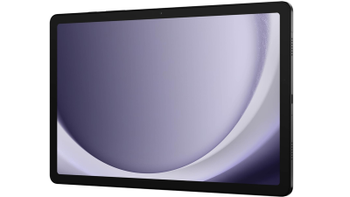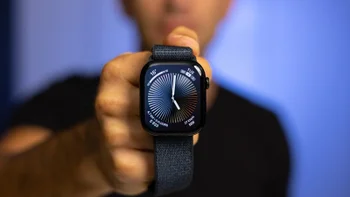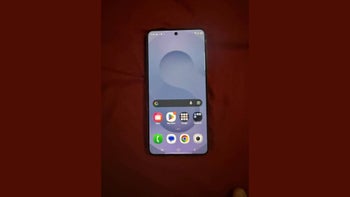Did SpaceX unknowingly stab T-Mobile in the back?

After local rivals, European telecom operators have also banded together against T-Mobile and SpaceX's direct-to-cellular service. In its counterattack, SpaceX may have unintentionally cast T-Mobile in an unfavourable light.
At the center of the fued is SpaceX's quest to get the Federal Communications Commission to relax its -120 dBW/m2/MHz aggregate power flux-density PFD limit. Previously, four companies, including AT&T and Verizon which have inked deals with satellite manufacturer AST SpaceMobile, had written letters to the FCC to stress the importance of retaining the current out-of-band PFD limit. They argued that a relaxed limit may harm their operations.
This has been echoed in a letter leading European operators - including Orange, PPF Telecom Group, Telefónica, Telenor, United Group, and Vodafone - wrote to the FCC.
They have requested the FCC to "reject any effort to relax its aggregate Out-of-Band-Emission ("OOBE") limit of-120 dBW/m2/MHz," claiming it is the bare minimum level of protection that is needed by mobile operators to provide the existing level of service. Like T-Mobile's American rivals, companies in Europe fear that a waiver on the limit would cause harmful interference.
They have requested the FCC to "reject any effort to relax its aggregate Out-of-Band-Emission ("OOBE") limit of-120 dBW/m2/MHz," claiming it is the bare minimum level of protection that is needed by mobile operators to provide the existing level of service. Like T-Mobile's American rivals, companies in Europe fear that a waiver on the limit would cause harmful interference.
SpaceX tries to undermine the FCC's trust in foreign-backed companies, forgetting T-Mobile is owned by Germany
SpaceX, whose Starlink satellites will be used to provide texting and calling services to T-Mobile customers, was quick to highlight its role during Hurricane Helene relief efforts. The company has deployed hundreds of Starlink kits in areas that lost cell service and internet connection after the flooding. The company says that the catastrophe demonstrated the need for a quick rollout of the direct-to-cell service.
SpaceX also claims that its analysis shows that the waiver it has requested is going to protect adjacent-band terrestrial networks.
Orange, Telefónica, and Vodafone are among the companies that have partnerships with AST. SpaceX has accused these foreign backers of AST of wanting to slow down its progress and putting the US at a disadvantage in the international market.
SpaceX has cautioned the FCC that "the joint activity of AST’s European investors and partners should sound alarm bells," and has asked the Commission to not bow to their demands.
Orange, Telefónica, and Vodafone are among the companies that have partnerships with AST. SpaceX has accused these foreign backers of AST of wanting to slow down its progress and putting the US at a disadvantage in the international market.
SpaceX has cautioned the FCC that "the joint activity of AST’s European investors and partners should sound alarm bells," and has asked the Commission to not bow to their demands.
While European national administrations and competition authorities are in the best position to decide whether AST is inappropriately colluding to stymie competitive entry in European markets, the Commission should not bow to AST’s investors’ and partners’ unfounded legal threats. The Commission cannot accept these foreign operators’ attempt to bully the Commission into putting itself into the position of other administrations. Instead, the Commission should continue to respect the sovereignty of other administrations and allow them to make their own technical judgments about whether AST is promoting an out-of-band emissions rule that finds notechnical basis and would needlessly harm consumers and first responders.
David Goldman, Vice President of Satellite Policy at SpaceX, October 2024
While persuading the FCC to not take an entity backed by European companies seriously, SpaceX conveniently forgot that T-Mobile is owned by German company Deutsche Telekom. This is the reason why the Committee on Foreign Investment in the United States (CFIUS) which reviews transactions involving foreign funding often steps in on matters relating to T-Mobile, such as its acquisition of Sprint.
SpaceX has tried to frame the agreements between AST SpaceMobile, which is an American company, and its relation with European competitors as questionable, even though T-Mobile is at its core a German company too.
Given no serious allegations have been made and the US and Europe are allies, this will probably not weigh heavily - if at all - on any future FCC decision, but SpaceX may want to proceed with caution in the future or risk souring its relationship with T-Mobile.
SpaceX has tried to frame the agreements between AST SpaceMobile, which is an American company, and its relation with European competitors as questionable, even though T-Mobile is at its core a German company too.
Given no serious allegations have been made and the US and Europe are allies, this will probably not weigh heavily - if at all - on any future FCC decision, but SpaceX may want to proceed with caution in the future or risk souring its relationship with T-Mobile.
Follow us on Google News













Things that are NOT allowed:
To help keep our community safe and free from spam, we apply temporary limits to newly created accounts: